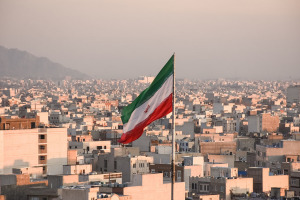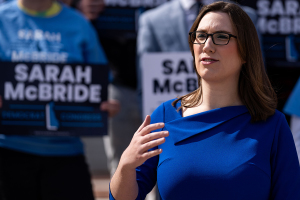Navy allows service members to attend church during COVID-19, updates policy

The U.S. Navy has clarified an order on in-person gatherings to allow personnel to gather for indoor worship services after members of Congress raised concern that the order barred service members from attending churches and houses of worship.
Last month, the First Liberty Institute, a legal group representing service members, voiced concern that a June 24 order barred service members from attending indoor worship gatherings during the COVID-19 pandemic while permitting other, secular forms of indoor activity.
Concern about the order was also raised by two Republican members of Congress in a July 1 letter to Secretary of Defense Mark Esper.
But on Wednesday evening, Acting Undersecretary of the Navy Greg Slavonic sent out a memo clarifying that in-person worship was permissible, provided measures are taken to curb the spread of COVID-19.
"[The order should not] be construed to restrict attendance at places of worship where attendees are able to appropriately apply COVID-19 transmission mitigation measures, specifically social distancing and use of face covering,” wrote Slavonic in the memo.
"I am directing you to ensure that all Service guidance reflects the reference message and to inform Commanders to incorporate this clarification allowing attendance at religious services where COVID-19 transmission mitigation measures may be appropriately applied."
The First Liberty Institute, a conservative religious freedom law firm which had been representing chaplain Daniel Schultz and others who complained about earlier limitations, praised the memo.
First Liberty General Counsel Mike Berry said in a statement Thursday that this was “a major victory for the Constitution and for religious freedom within our military.”
“We are grateful to Acting Undersecretary Slavonic and Navy leadership for righting this ship, and to Commander-in-Chief Trump for making religious liberty a priority,” stated Berry.
“This memo means tens of thousands of our brave service members will be able to safely and freely exercise their religious beliefs.”
For their part, First Liberty sent a letter on June 29 on behalf of Schultz arguing that efforts to combat the coronavirus “cannot come at the expense of the Constitution.”
“No compelling interest has been cited as a basis for banning Major Schultz and other service members from the right to freely exercise religious beliefs via in-person religious services,” read the June letter.
“And even if the Navy can establish that its order is necessary to advance a compelling government interest, it cannot satisfy [Religious Freedom Restoration Act] by proving that an outright ban on religious service attendance is the least restrictive means of advancing that interest.”
Reps. Doug Collins, R-Ga., and Doug Lamborn, R-Colo., argued in their July 1 letter to Esper that while it is important to protect the health and safety of service members during the pandemic, it is “unlawful” to “single out religious gatherings” while allowing other gatherings to take place.
“To enforce that prohibition under threat of court-martial is unconscionable and provides yet another example of why change is sorely needed at the Pentagon,” the congressmen wrote.
In-person worship services have become a subject of controversy when it comes to efforts to curb the spread of COVID-19. There have been instances in which church gatherings have been linked to outbreaks of the virus. Some, however, argue that it is “unfair” to single out churches as sources of infection when people are gathering in secular locations as well.
Legal battles have been fought in multiple states and localities by congregations arguing that they have been unfairly singled out for stricter rules on gatherings than secular organizations.
Last month, a three-judge panel of the U.S. Court of Appeals for the Seventh Circuit ruled that Illinois was right to limit in-person worship to no more than 10 people.
Judge Frank Easterbrook authored the opinion, concluding that the state executive order capping in-person attendance did not single out religious gatherings.




























